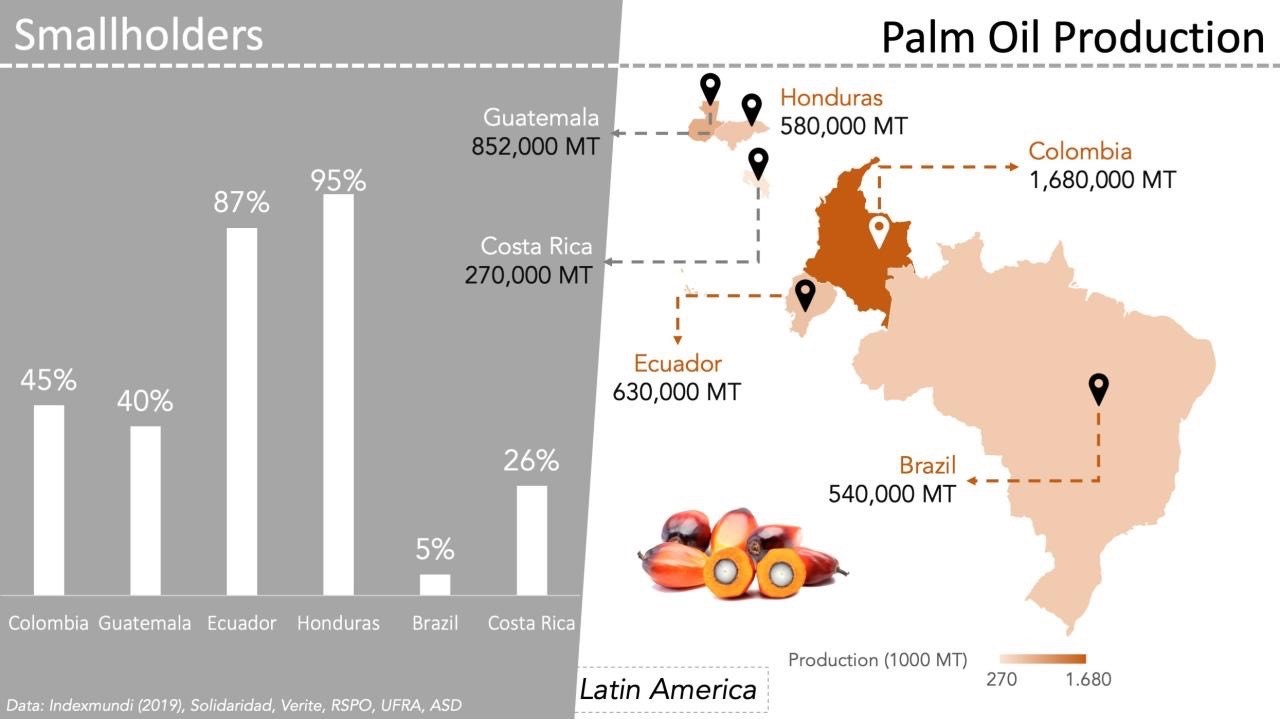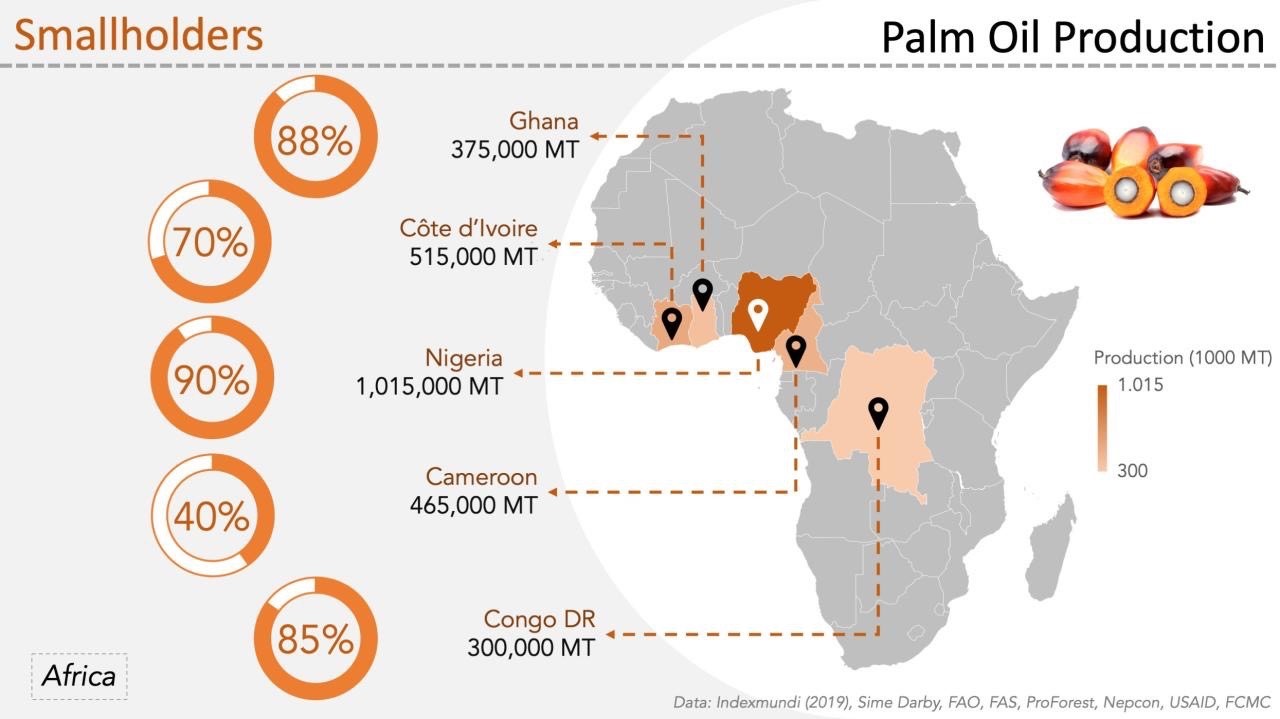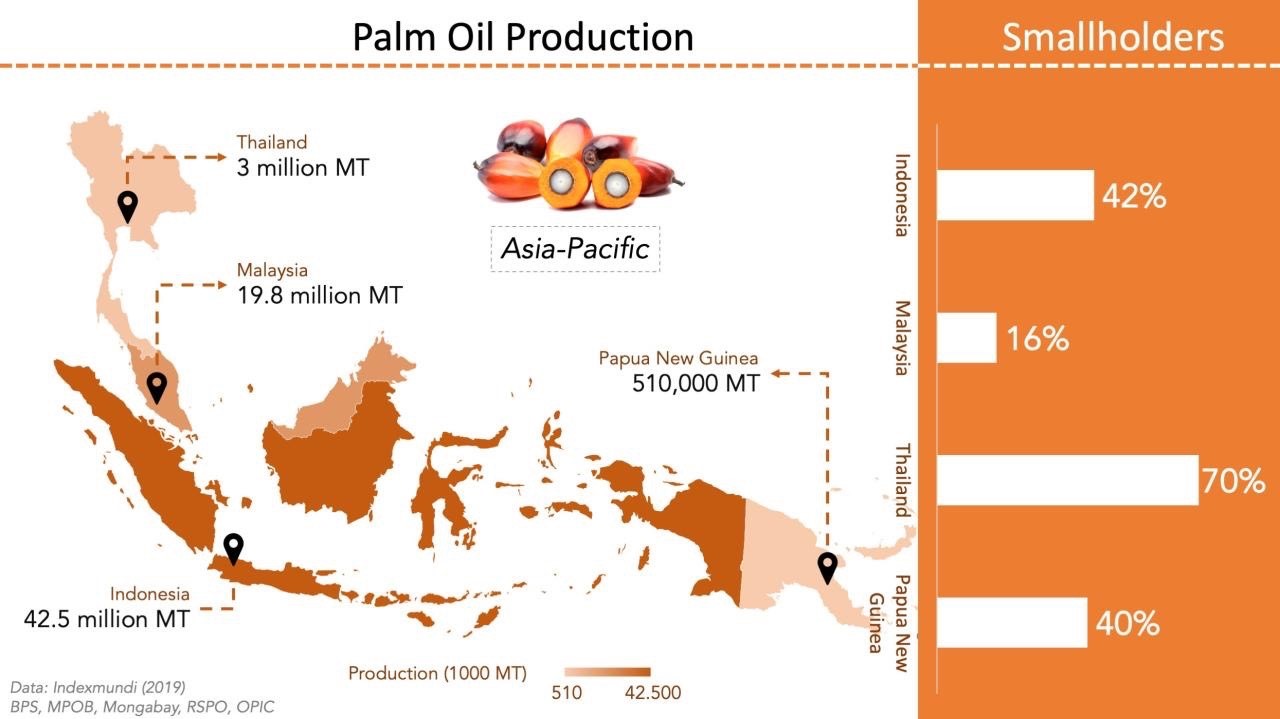Sustainably Produced Palm Oil Creates Robust Livelihoods
Growing oil palms and harvesting their fruits provides a major source of income for 3-4 million smallholder farmers who depend partly or solely on palm oil for their livelihoods.
As oil palms can be harvested all year-round, their cultivation provides families in tropical areas with a steady source of income. In producer countries, the crop can be crucial in the battle against poverty and plays a vital role in the improvement of socio-economic conditions in rural areas.



Infographics by CPOPC
Palm oil production often improves smallholder and farmer livelihoods.
- In Ghana farmers had higher income and suffered less from multidimensional poverty.
- In Guinea farmers had more stable incomes and better food security.
- In Indonesia farmers increased consumption of food and non-food items of the household and benefited from more diverse diets.
Palm oil production can generate employment for landless laborers and small-scale entrepreneurs.
- Across West Africa e.g. in Ghana and Cameroon many small-scale entrepreneurs are involved in artisanal processing mills to generate extra income.
- In Uganda young adults migrated to oil palm regions because of the better employment opportunities.
- In Indonesia oil palm cultivation created rural employment for many landless laborers.
- In Mexico, Guatemala and Colombia households in the palm oil sector benefited from higher employment income.
Palm oil production can improve rural infrastructure.
- In Indonesia palm oil cultivation improved electrification, road and market infrastructure, schools and healthcare facilities.
- In Colombia municipalities with palm oil cultivation had lower poverty rates and higher food security.
Sustainable palm oil production addresses social problems such as worker’s rights and land conflicts associated with palm oil production.
- When production is sustainable, the positive impacts that oil palm cultivation has on rural households and communities in producer countries are increased and the risks of social problems hampering the supply chain can be removed.
- There is recognition among NGOs of the importance of the RSPO certification system as a mechanism for driving socio-economic improvements in the palm oil sector. The certification scheme guarantees the promotion of human rights, land rights, and free, prior and informed consent (FPIC).
- NGOs, companies, and policy makers can also work outside the RSPO certification system to promote best practice. This is key to driving further positive change.